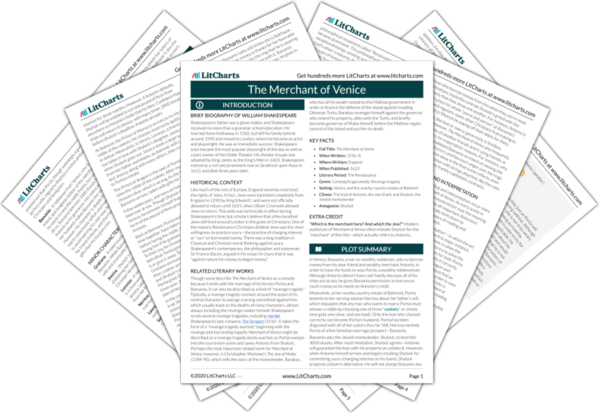Closely related to the theme of prejudice and intolerance is the theme of humanity—and the inhumanity of which various characters accuse one another. In insulting and abusing Shylock, the Venetians frequently denigrate him as an animal or devil. Shylock, in turn, seeks to reduce his debtor Antonio to the status of an animal whose body can be bought or sold. In the courtroom scene, he justifies his purchasing of a pound of Antonio's flesh as being fundamentally similar to the way in which other Venetians might buy slaves or livestock.
Shakespeare was writing The Merchant of Venice as a philosophical movement called "Renaissance humanism" became prominent. This philosophy defined humans as exceptional beings, existing outside of the chain of being of God's other creatures. Yet, The Merchant of Venice shows how this type of humanism can be used to abuse outsiders. After all, if being "human" ceases to be based on biology, then exactly who is human and who isn't becomes a matter of interpretation. The play's Christian characters clearly believe that being Christian is a primary requirement for being human, as both the insults aimed at Shylock and the Prince of Morocco suggest. In his famous speech justifying his desire for revenge in 3.1, Shylock explicitly rejects the humanist definition of "humanity," describing his similarity to the Venetians in terms of biological functions that all human beings share: tickling, eating, bleeding, dying. Constant references in the play to "flesh and blood" further highlight humans' biological, "animal" origins..
Human and Animal ThemeTracker

Human and Animal Quotes in The Merchant of Venice
Fading in music.
Meetest for death: the weakest kind of fruit
Drops earliest to the ground.
















